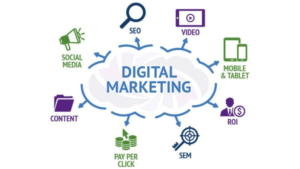The Evolution of Facebook: From Social Network to Digital Ecosystem
In 2004, Mark Zuckerberg and his Harvard roommates launched a simple idea: a social network exclusively for college students. Little did they know, this would evolve into the global digital empire that Facebook is today. What started as “The Facebook” has since become a platform connecting billions of users worldwide, transcending its original purpose and transforming into an integral part of the digital ecosystem.
The Humble Beginnings
Facebook’s original vision was straightforward: to provide a platform where college students could interact, share ideas, and stay connected. It wasn’t long before its user base expanded beyond Harvard, eventually growing into a global phenomenon. In just a few years, Facebook had millions of users across the world, outgrowing its initial exclusivity. It was no longer just about networking—it became the go-to platform for staying in touch with friends, family, and even acquaintances.
The Shift to a Digital Ecosystem
Over the years, Facebook has evolved from a social networking platform to a vast digital ecosystem that spans multiple facets of modern life. Its growth has been marked by continuous innovation, acquisitions, and a diversification of services. Facebook is no longer just about status updates, photos, or connecting with friends. It’s a marketplace, a news hub, an entertainment platform, and a business tool—all rolled into one.
1. Business and Advertising
One of Facebook’s most successful strategies has been its ability to become a powerful marketing tool. Through targeted advertising, businesses of all sizes can reach their specific audience with precision. The introduction of Facebook Ads and business pages revolutionized how companies approach online marketing. Whether it’s a small local shop or a global brand, Facebook offers tools for businesses to thrive and engage with customers on a deeper level.
2. The Rise of Facebook Marketplace
Facebook Marketplace, introduced in 2016, allowed users to buy and sell items within their local communities. This feature added a new layer of functionality to the platform, bringing commerce directly to users’ fingertips. By combining social interactions with e-commerce, Facebook tapped into the growing trend of peer-to-peer transactions and local selling, giving users a new reason to visit the platform daily.
3. Messenger and Communication Tools
Facebook Messenger, which started as a simple chat feature, has grown into a full-fledged messaging service with features like voice and video calls, file sharing, and even payments. Messenger’s integration with other Facebook services, along with the ability to interact with businesses, customer service bots, and even games, makes it a comprehensive communication tool.
4. Facebook’s Role in News and Information
Facebook has increasingly become a key source for news, with many users turning to their feeds for updates on world events, politics, and trends. The platform’s algorithm curates what appears on your feed based on what you interact with most, but it’s also responsible for driving significant traffic to news outlets, both large and small. While this has raised concerns over misinformation, Facebook has taken steps to address these issues through fact-checking and improving its algorithm.
5. Acquisitions: Instagram and WhatsApp
In 2012, Facebook acquired Instagram for approximately $1 billion, and in 2014, it bought WhatsApp for $19 billion. These acquisitions have allowed Facebook to expand its reach and enhance its offerings. Instagram has become a major platform for visual storytelling and influencer marketing, while WhatsApp is a globally popular messaging app used by millions daily.
The Controversies and Challenges
Despite its massive success, Facebook has not been without controversy. From concerns over privacy and data security to the role it plays in spreading misinformation, Facebook has faced numerous challenges that have affected its reputation. The company has made efforts to address these issues by implementing new privacy features, enhancing data protection, and working on cracking down on false information. But it remains to be seen whether these efforts will fully restore trust in the platform.
The Future of Facebook
Looking ahead, Facebook will continue to evolve in response to the changing digital landscape. With the rise of virtual reality (VR) and augmented reality (AR), Facebook is investing heavily in technologies that may shape the future of social interaction. The company has already made significant strides with its Oculus VR division, and the upcoming developments in the metaverse show that Facebook (now known as Meta) is preparing for the next generation of digital connectivity.
Conclusion
From its humble beginnings as a social network for college students, Facebook has transformed into a digital ecosystem that impacts nearly every aspect of modern life. While it faces challenges, its ability to innovate and adapt has kept it at the forefront of the digital age. As we look to the future, one thing is clear: Facebook’s journey is far from over, and its role in our digital lives will continue to grow and evolve in exciting new ways.


